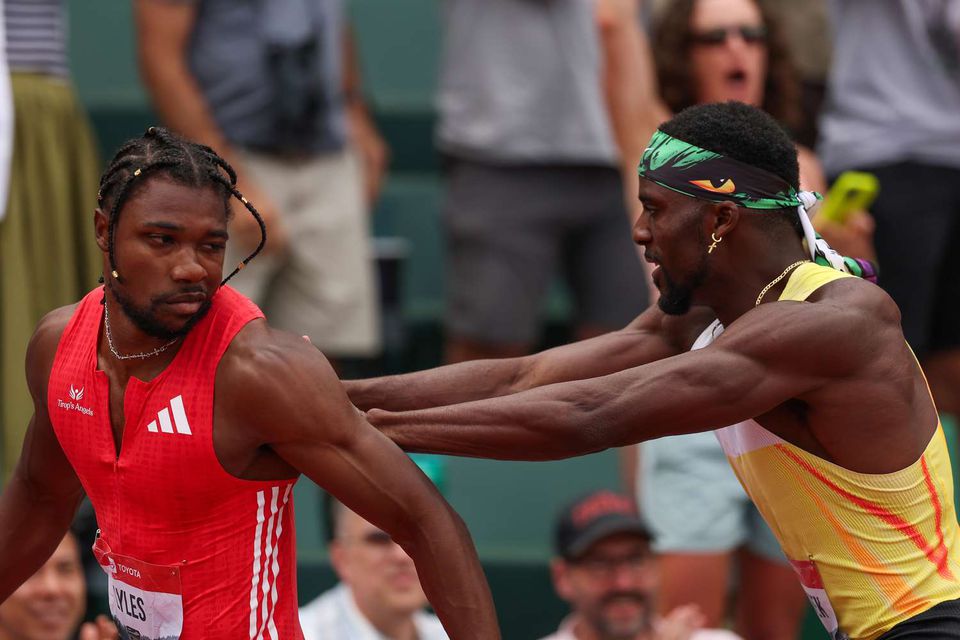The men’s 200m final at the USATF Tokyo World Championship Trials was expected to be a battle against the clock, but instead delivered one of the most talked-about rivalries in recent track history. Noah Lyles stormed to a world-leading 19.63 seconds, edging Kenny Bednarek by just four hundredths of a second.
Moments after crossing the finish line, Lyles turned toward Bednarek, locked eyes, and appeared to shove him with both hands. The crowd reacted instantly, and the clip spread rapidly online, fuelling heated debates about intent, sportsmanship, and psychological tactics in sprinting.
Bednarek’s response was measured but firm. After a brief handshake, he told Lyles, “Never do that to me again.” The tension between the two sprinters has since become a major talking point ahead of their anticipated rematch at the World Championships in September.
A former Olympic 100m champion offered his perspective, initially believing the contact might have been unintentional. From his view, Lyles maintained his lane coming into the curve and was simply doing what he is known for competing with flair and confidence.
He praised the verbal sparring and mind games that often accompany elite sprinting, saying such rivalries bring excitement to the sport. However, he cautioned that physical contact should be avoided. “There’s always chirping in this sport, and I love it — as long as you don’t touch anyone. Say what you want, do whatever motivates you, and if it helps you win championships, go for it.”
Breaking down the race, he noted that Bednarek started aggressively and looked strong off the curve. But Lyles’ composure, staying tall and relaxed, proved decisive. In contrast, Bednarek appeared to tighten up in the closing stages, allowing Lyles to surge ahead.
The advice for Bednarek was clear: don’t dwell on the incident or let it affect future performances. Once an opponent gets into your head, it becomes difficult to beat them in high-stakes races. Instead, the moment should be seen as just a bad day at the office, with a few mistakes but also positives to build on.
As for Lyles, the assessment was simple he executed his race plan, kept his composure, and once again showed why he remains one of the most formidable competitors in world sprinting.

